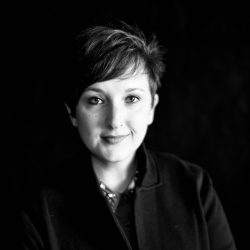Falvey Then and Now, Through the lens of an Intern
In my senior year of college, I found myself in a stressful living situation and so became a frequent visitor to the basement reading room of Falvey Library. We became fast friends since we spent so much time together (the moment it opened until its closing). At a time of immense confusion and uncertainty, Falvey embraced me with a quiet, steady sense of permanence that I so desperately needed. Yes, it was an escape, but it was also the perfect place for reflection without distraction. It was where a young woman could uncover her inner strength and achieve academic success through focus and fortitude. These very qualities would help me get through the tragedy of the 9-11 terrorist attacks that I experienced in New York, not long after graduation.
Twenty years later, the library beckons again, this time as an intern finishing up a Master’s in Library and Information Science from Clarion University. It’s proven to be a very different experience than as an undergrad, especially amidst a pandemic where movement is limited. Students and faculty are finding their own ways through another stressful period of history, and the library evolves. There’s still permanence in those physical walls, though they’ve become less significant for me. Indeed, what I’ve learned most is that the library has played a key role in tearing down metaphorical walls in order to improve access to information. Of course, it’s not just the building itself that holds weight, but the precious information it maintains waiting for students and faculty to discover.
With urgency, the pandemic has revealed the importance of information without barriers and the speed in which researchers and scientists need unencumbered access to digital journal articles, studies, and data sets. These concepts drive the Open Access publishing movement, which has been of particular interest to me as information needs change amidst this pandemic. I was thrilled to have the opportunity to work with Sarah Wipperman in the Scholarly Communications Department on a guide to Open Access (OA). Sarah was generous with her time, patient with questions, and incredibly knowledgeable about copyright, fair use, and scholarly publishing in general. We explored big picture concepts pertaining to new ways of publishing such as: What is Open Access? How can it affect stakeholders? What OA options and funding are available at Villanova and beyond? How will publishing in various ways affect the breadth of readership? The guide we developed presents students and faculty with information regarding different avenues for publishing their work. Each scholarly publishing experience is unique, but arming writers and researchers with quality information and options prior to signing agreements and publishing is essential. We hope that the document we created will be a useful tool in helping Villanovans make pivotal publishing decisions now and into the future.
While this internship hasn’t been in person, I still hear the student and faculty voices, this time in the articles I’ve read and archived for Beaudry Allen with the Documenting Covid Digital Archives project. While I archived articles about significant events in the past year which seem indelibly linked to the COVID-19 pandemic such as lockdowns, local BLM protests, themes of racial inequity, sexual assaults, vaccination efforts, effects on learning and the economy, I found myself eventually gravitating toward the stories told by individuals, which vary according to experience and societal lens. A look back on the year from the Villanovan Magazine, “A Letter to the Class of 2021”, Philadelphia Magazine’s “Coronavirus Pandemic Impact Stories” provide the viewpoints of regular Villanovans and Philadelphians struggling to see the light at the end of the tunnel in this pandemic. We hope that the content captured during this difficult time will provide future generations with a balanced perspective and general history, as well as a means of processing the events of these last 18 months. Afterall, the effects of the pandemic reach well beyond the virus itself. Experience has shown this Villanovan that while we cannot control negative events that arise, we can process and learn from them, and try to make sense of what has occurred. In due course, these experiences will shape us, and the university itself, in ways we’d never imagine.
_________________________________________________________________________________

*The intern, age 9, joined by the Wildcat, at Sibling’s Weekend (circa 1986) with a lifetime ahead of her.
By Anne Walkenhorst
Scholarly Communications and Digital Archive Intern
Clarion University of Pennsylvania (ALA accredited) MLS spring 2021

